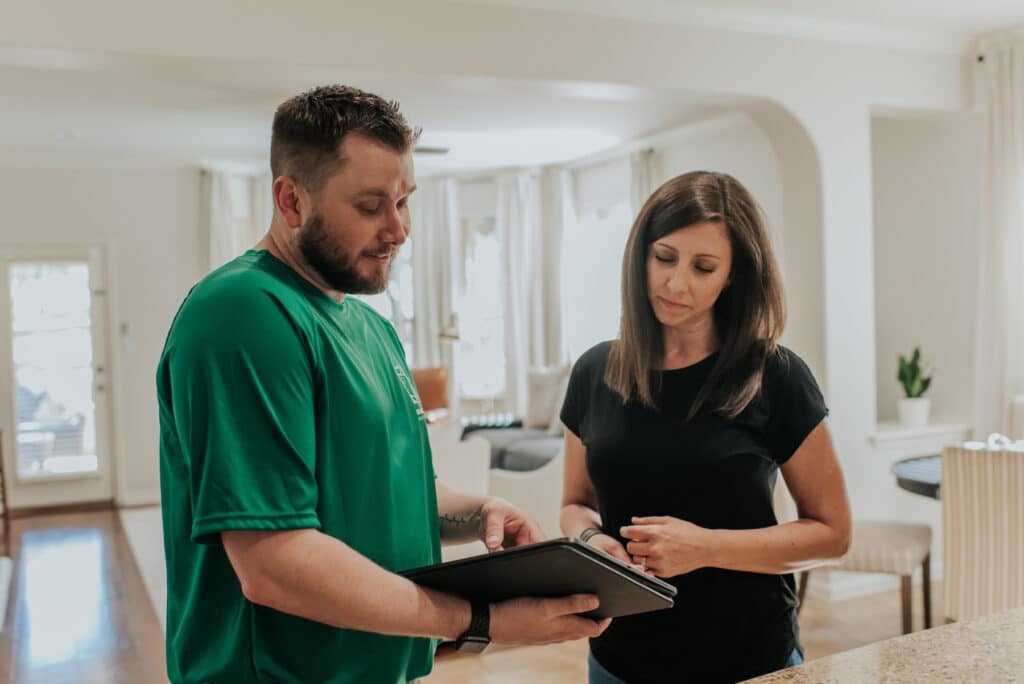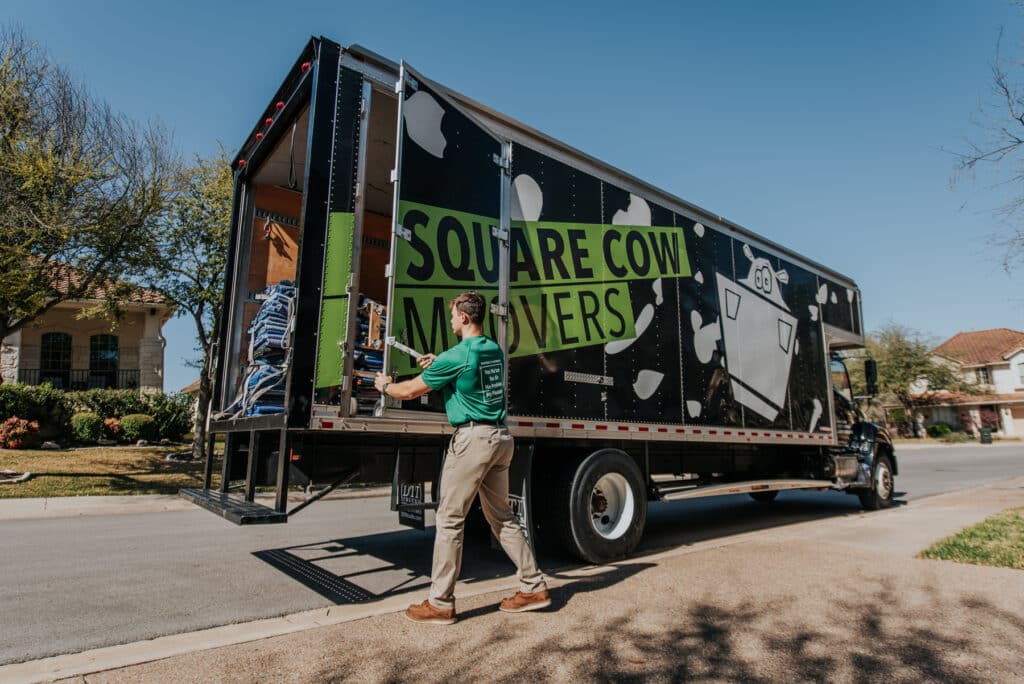Relocating may leave seniors feeling confused and disconnected from their familiar surroundings. With our relocation support strategies, you can finish the transition and help seniors adapt to this move. Get expert guidance on caring for elderly family members during relocation with proven methods for smooth transitions.
Caring for Elderly Family Members During Relocation
To care for elderly family members during a move, start with open communication and downsize when packing. On the moving day, manage their health and stress by having a dedicated comfort person, packing their basic needs, and coordinating effectively with your movers. When settling in, prioritize immediate comfort and re-establish routines.

With the assistance of our moving services, you can make moving day less of a headache, especially if your older family members need extra support.
Special Considerations for the Elderly When Moving
By recognizing these challenges, families and movers can implement tailored strategies to create a successful transition for their loved ones, especially the elderly.
| Challenges | Strategies | Support Resources |
| Confusion about location, forgetting familiar items | Use familiar objects as anchors; maintain consistent communication | Photo albums, labeled items, written schedules |
| Getting lost in a new environment | Provide clear signage; use familiar furniture placement | Night lights, clear pathways, familiar scents |
| Difficulty expressing needs or concerns | Use simple language; validate feelings | Communication boards, picture cards, consistent caregivers |
| Increased agitation, sundowning, resistance to change | Maintain a calm environment; stick to routines | Calming music, familiar blankets, structured activities |
Plan the Move
These initial steps set the tone for the entire process, minimizing surprises and maximizing moving for elderly family members.
1. Communicate Openly and Empower Decisions
Strive to have open communication with your elders to build trust and avoid reluctance when relocating.
- Sit down early and talk about why the move needs to happen.
- Involve them in decisions regarding their new living arrangements, like choosing paint colors or furniture placement, for a sense of ownership.
- Clearly explain each step of the moving process, including timelines and what to expect on moving day.
2. Prioritize Health and Comfort
Taking proactive steps to address the physical and emotional well-being of elders will prevent potential health complications.
- Schedule a pre-move medical check-up and obtain any necessary medical records.
- Discuss the move with their healthcare providers to understand potential impacts on their health or chronic conditions.
- Set easy access to medications, mobility aids, and comfort items throughout the packing and moving process.
3. Downsize With Dignity and Respect
Downsizing late in life can be an emotionally charged process, as it often involves letting go of cherished memories and possessions.
- Since this can be a rather difficult time for some, give your elders ample time for downsizing.
- Encourage elders to share stories about their belongings, validating their memories.
- Offer practical assistance with sorting, packing, and donating items, and allow them to make the final decisions about what to keep, donate, or discard.
Manage Moving Day Stress
Moving day can get pretty hectic for everyone, and these strategies can keep stress levels down in elderly individuals.

1. Assign a Designated Comfort Keeper
A dedicated individual acts as a constant source of support, shielding the elderly from the hustle and bustle of the move.
- Pick someone calm and familiar to your loved one — maybe a close friend or relative.
- Have them stick close, answer questions, and offer guidance throughout the day.
- Let the assigned person act as a liaison between the elderly individual and the movers, relaying any special instructions.
2. Pack Important Items and Create Calm Spaces
Having immediate access to important items and creating a calm environment can provide much-needed stability despite the relocation.
- Pack a clearly labeled bag with IDs, medicines, glasses, and snacks.
- Set up a quiet spot at the new place with familiar things — a favorite chair or a blanket.
- Try calming scents or soft lighting to make it feel homey.
3. Coordinate Seamlessly With Professionals
Clear communication and a well-defined plan can make movers work efficiently while minimizing disruption for your elderly loved one.
- Talk clearly with movers, caregivers, and staff about the plan and your loved one’s needs.
- Let the pros handle the heavy lifting so you can focus on your family member.
- Create a timeline or checklist and share it with everyone involved.
Facilitate Settling In and Adaptation
This stage requires patience, empathy, and a proactive approach to re-establishing normalcy in the lives of your elderly family members.
1. Prioritize Immediate Comfort and Familiarity
Surround your elders with familiar items and establish key areas quickly to promote security.
- Unpack important items first, focusing on the bedroom and bathroom, to give immediate access to necessary personal belongings and a comfortable sleeping space.
- Arrange their most cherished possessions, such as family photos or beloved mementos, in prominent locations.
- Encourage them to use their own blankets, pillows, or clothes.
2. Re-Establish Routine
Re-establish familiar routines to foster normalcy and combat feelings of isolation in your elder loved ones.
- Create predictability by going back to their mealtimes, medication schedules, and favorite activities.
- Research local senior groups or volunteer opportunities that align with their interests to encourage social interaction.
- Involve them in simple household tasks in the new home, such as watering plants, to give them a sense of purpose.
3. Provide Ongoing Support
The adaptation process is ongoing, so continue to monitor their well-being and provide sustained support.
- Regularly check in with your elderly family member to discuss how they are feeling and address any concerns.
- Be patient and understanding, as adjusting to a new environment can take time.
- Offer continued assistance with unpacking, organizing, and navigating the new neighborhood.

Related Questions
How Does Relocation Affect the Elderly?
Relocation can profoundly affect the elderly by disrupting their established routines and familiar surroundings, often leading to increased anxiety or confusion. The physical demands and emotional toll of leaving a cherished home can also impact their health and well-being.
How to Make Elderly Parents Feel More in Control When Moving?
To help elderly parents feel more in control, include them in decision-making processes, like decorating their new living space. Regularly ask for their input, keeping their voices heard throughout the entire moving journey.
What Are the Benefits of Hiring Specialized Moving Services?
Hiring a specialized moving service offers benefits, such as movers trained in handling sensitive situations with elderly individuals and expertise in setting up spaces to meet the needs of seniors. Our services provide a more personalized and compassionate approach compared to general residential movers.
Conclusion
With our thoughtful planning and compassionate relocation strategies, your elders can ease into this significant life change. Along with our professional residential movers, who specialize in senior relocations, your elderly family member can receive gentle, experienced support during the moving process.
